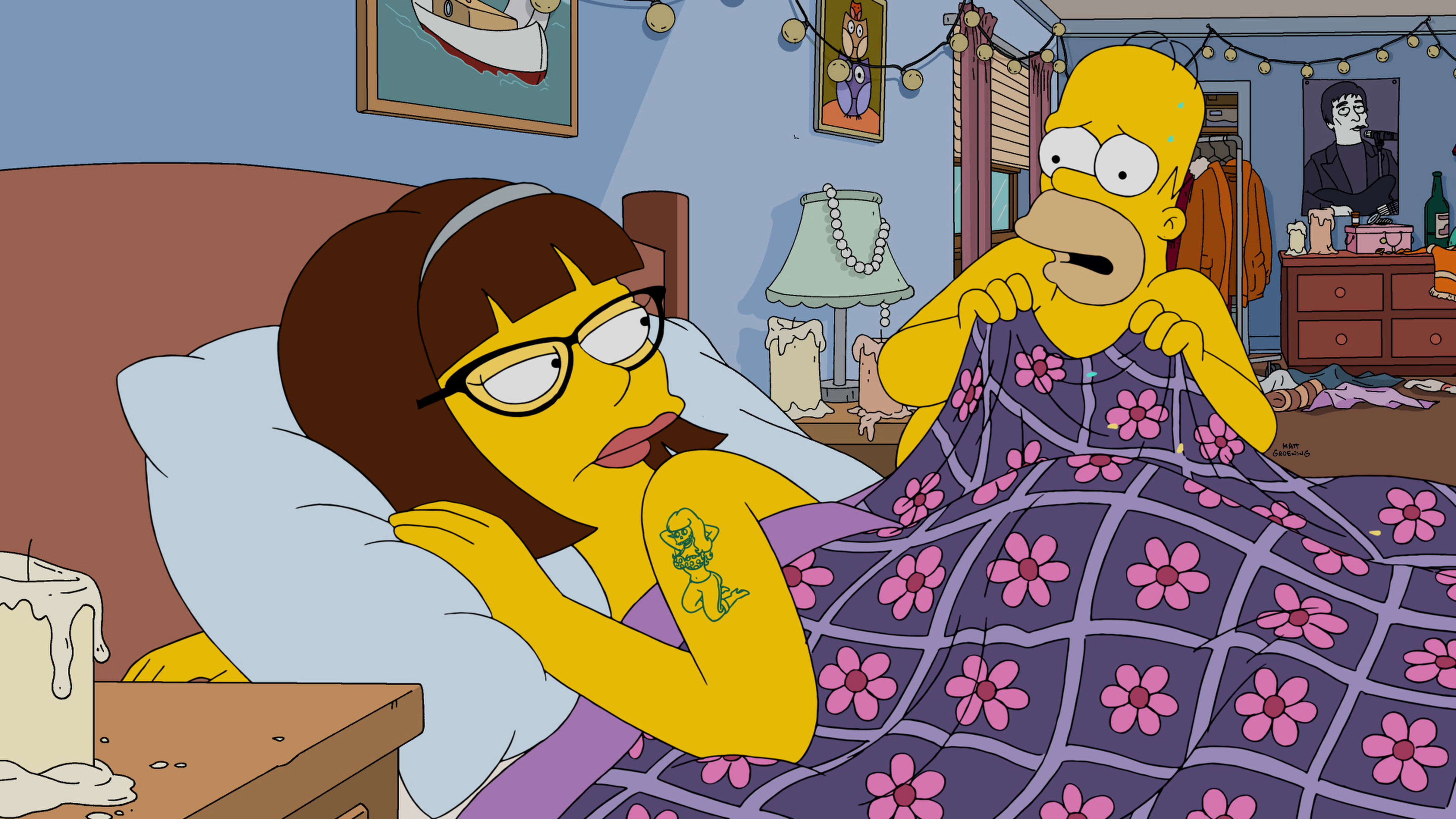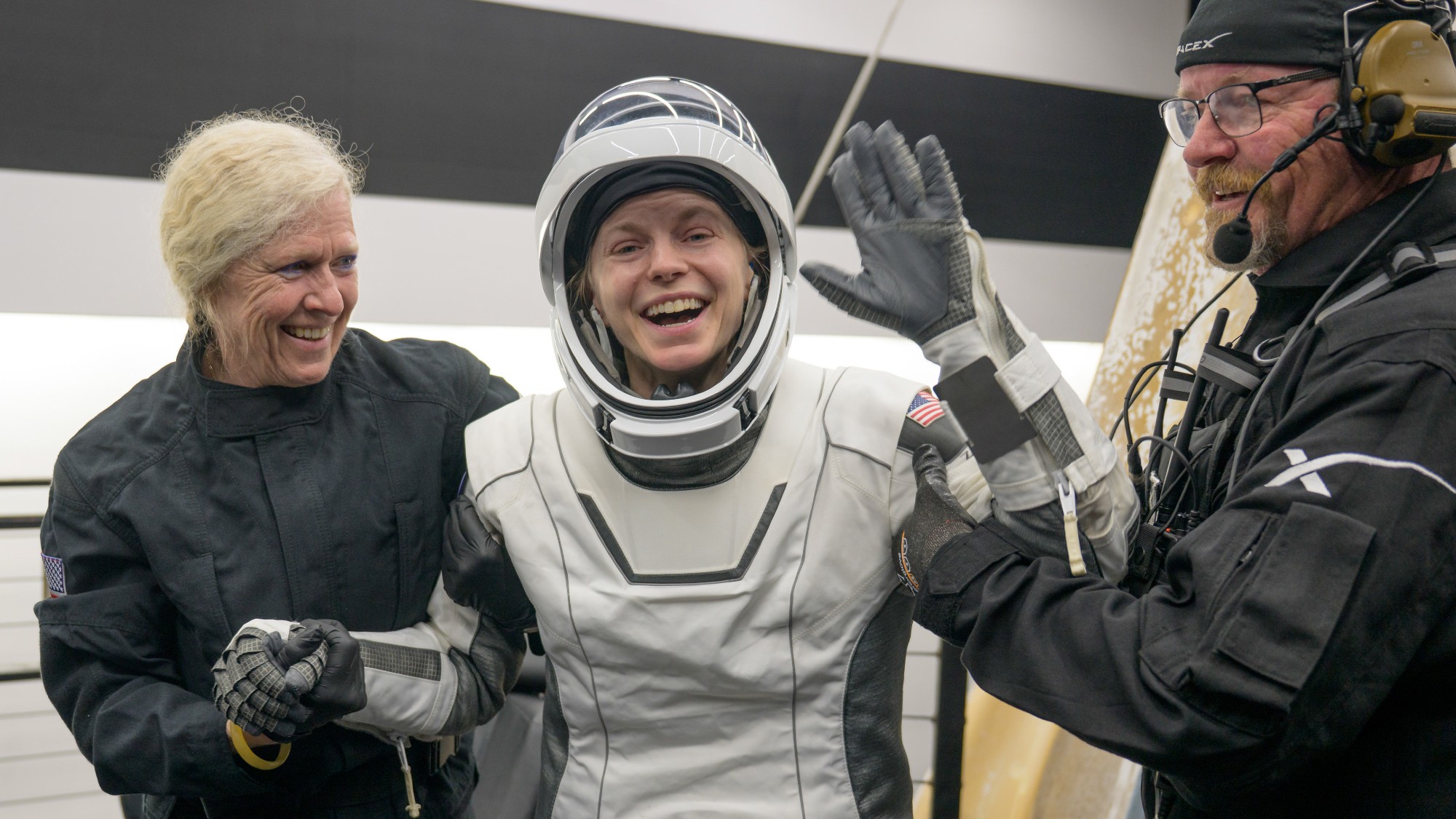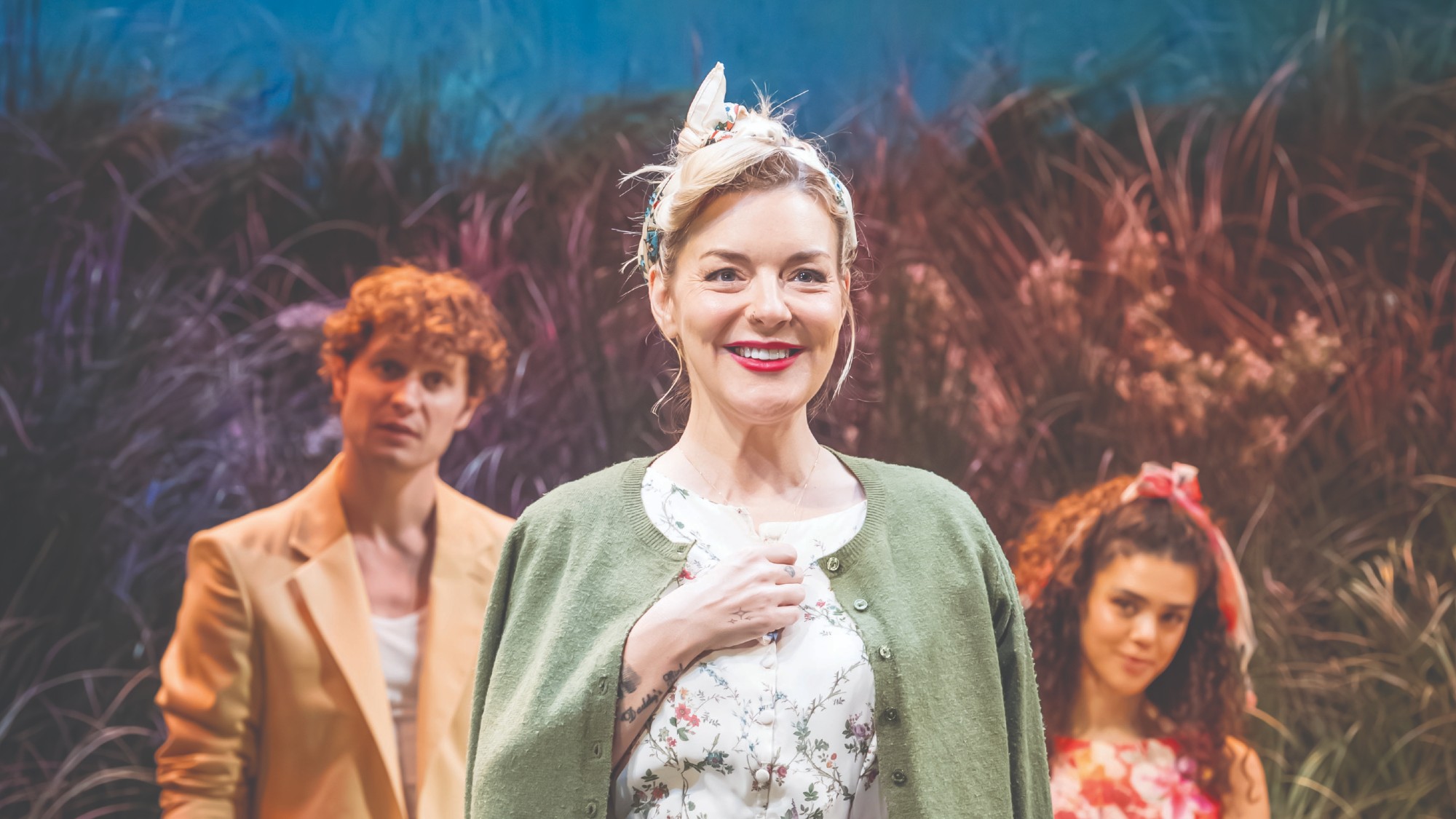The Simpsons shows why narcolepsy is no laughing matter
The buzzy Simpsons premiere was a surprisingly serious look at an often mocked disorder


Marge and Homer Simpson's marriage is a cartoon miracle, enduring despite 26 seasons of strife. But in Sunday's season premiere, a new source of tension finally drives the couple to legally separate: Homer's narcolepsy. As someone with the sleep disorder, I was surprised to find the episode wasn't the comedic disaster I expected.
When Simpsons executive director Al Jean dropped the bomb about the split in June, people with narcolepsy were wary of yet another popular comedy bound to ridicule and inaccurately depict such a serious condition.
"What really hurts is thinking about children and young adults with narcolepsy, these everyday superheroes, who will be watching The Simpsons in September," wrote narcolepsy advocate Julie Flygare in a June blog post. "They will likely see a distorted version of their illness lead to marriage breakup. A little piece of hope will die that day."
The Week
Escape your echo chamber. Get the facts behind the news, plus analysis from multiple perspectives.

Sign up for The Week's Free Newsletters
From our morning news briefing to a weekly Good News Newsletter, get the best of The Week delivered directly to your inbox.
From our morning news briefing to a weekly Good News Newsletter, get the best of The Week delivered directly to your inbox.
I shared Flygare's concerns because pop culture has a history of poking fun at the disorder in a way that diminishes its severity and furthers misconceptions. Rowan Atkinson's character in Rat Race somehow falls asleep abruptly while walking. Modern Family's Phil Dunphy magically becomes narcoleptic when he harbors guilt over lying to his wife. The doctors and nurses in Scrubs go out of their way to laugh at a patient who falls asleep whenever he's sexually aroused. But sexual arousal, like anger, amusement, and surprise, can trigger cataplexy in patients, not unplanned naps.
Jean promised the narcolepsy community that The Simpsons would be different. Against all odds, it actually is.
For the most part, the show throws the usual narcolepsy tropes out the window, and succeeds in showing empathy for people working to manage it.
At the start of the episode, Dr. Hibbert diagnoses Homer with narcolepsy after he manages to sleep through a workplace fire that badly burns him. Being Homer, he promptly uses his doctor's note as an excuse to stop doing all chores. Increasingly frustrated by Homer's inability to recognize how his actions affect his marriage, Marge drags him to a therapist, who persuades her to finally leave him. Homer quickly meets Candace, a quirky, drug-loving pharmacist (Lena Dunham), while Marge falls for an older man, who, as it turns out, is Candace's father.
A free daily email with the biggest news stories of the day – and the best features from TheWeek.com
Along the way, The Simpsons actually weaves in truths about the realities of living with narcolepsy.
Dr. Hibbert links Homer's sleep disorder to low levels of the neurotransmitter hypocretin, which is spot-on for most narcolepsy patients like Homer, who experience cataplexy, a sudden loss of muscle tone that temporarily renders part or all of the body immobile. Before Homer leaves the hospital, Bart excitedly asks Dr. Hibbert if it's time to pull the plug on his father. The doctor firmly shuts down Bart, stressing that people with narcolepsy lead normal lives. It's a quick but crucial moment that sets the tone for an episode intent on making narcolepsy funny without being disrespectful.
Indeed, narcolepsy is often funny, especially to those of us who manage it every day. My hallucinations, a common symptom, are ridiculously surreal, and I can't even describe the scarier ones without laughing. I've dozed off in public at stupidly inappropriate times. But just because there are good slapstick opportunities doesn't mean it's not a serious, life-altering disorder for an estimated 1 in 3,000 Americans who have narcolepsy with cataplexy, and others, like myself, who don't have cataplexy. It's about managing exhaustion while trying to persuade your friends, colleagues, and strangers that you're not lazy or rude just because you need a lot of naps to make it through the day.
Homer, like the rest of us, will need to find which medicines work for him, so off he goes with prescriptions for amphetamines, GHB, and anticataplectics — all real options for treating narcolepsy. For a 22-minute cartoon, the level of technical specificity is impressive.
Even the dangers The Simpsons projects are real. Homer's struggle to avoid brief, disorienting naps on the job are familiar to me — and the fact that he dozes at a nuclear power plant only underscores the trouble people with narcolepsy can find themselves in.
Still, the show does perpetuate some misconceptions. Falling asleep and being unable to move parts or all of your body are two distinct symptoms, and, like in Scrubs, they're conflated here. And while a spinal tap can be used to diagnose narcolepsy with cataplexy, it's not the norm. Poor Homer — Dr. Hibbert could've simply wired his brain for a couple of non-invasive sleep tests instead.
Some might object to the larger arc of the episode: the eagerness with which Homer uses his narcolepsy as a crutch. He cites his diagnosis as a reason to be excused from virtually all of his responsibilities as a husband, father, and employee. He drinks alcohol with pills when he isn't supposed to, leading to a trippy high with his girlfriend.
But it's clear that The Simpsons is depicting Homer's laziness not as a narcolepsy problem, but as a Homer problem. His inability to work on his marriage isn't new, and Marge refuses to write it off as a symptom of his disorder. When she boots Homer from the house, he cries and asks, "How can you kick me out now that I'm sick? Narcolepsy is a serious thing."
Marge's pointed response nails her concern: "Maybe because you didn't take it seriously enough."
By the end of the episode, it's clear there's no sustained separation for Homer and Marge in sight after all. But the buzzy premise ultimately gives way to a meaningful exploration of what it's like to live with narcolepsy. With its sensitivity, The Simpsons proves itself an anomaly in a comedic world that so often refuses to validate the experiences people with narcolepsy face on a daily basis — and the strain the disorder can put on relationships.
Julie Kliegman is a freelance writer based in New York. Her work has appeared in BuzzFeed, Vox, Mental Floss, Paste, the Tampa Bay Times and PolitiFact. Her cats can do somersaults.
-
 Why is London’s property market slumping?
Why is London’s property market slumping?Today's Big Question Some sellers have reported losses of hundreds of thousands of pounds
-
 Quiz of The Week: 10 – 16 January
Quiz of The Week: 10 – 16 JanuaryQuiz Have you been paying attention to The Week’s news?
-
 Woman in Mind: a ‘triumphant’ revival of Alan Ayckbourn’s dark comedy
Woman in Mind: a ‘triumphant’ revival of Alan Ayckbourn’s dark comedyThe Week Recommends Sheridan Smith and Romesh Ranganathan dazzle in ‘bitterly funny farce’
-
 Walter Isaacson's 'Elon Musk' can 'scarcely contain its subject'
Walter Isaacson's 'Elon Musk' can 'scarcely contain its subject'The latest biography on the elusive tech mogul is causing a stir among critics
-
 Welcome to the new TheWeek.com!
Welcome to the new TheWeek.com!The Explainer Please allow us to reintroduce ourselves
-
 The Oscars finale was a heartless disaster
The Oscars finale was a heartless disasterThe Explainer A calculated attempt at emotional manipulation goes very wrong
-
 Most awkward awards show ever?
Most awkward awards show ever?The Explainer The best, worst, and most shocking moments from a chaotic Golden Globes
-
 The possible silver lining to the Warner Bros. deal
The possible silver lining to the Warner Bros. dealThe Explainer Could what's terrible for theaters be good for creators?
-
 Jeffrey Wright is the new 'narrator voice'
Jeffrey Wright is the new 'narrator voice'The Explainer Move over, Sam Elliott and Morgan Freeman
-
 This week's literary events are the biggest award shows of 2020
This week's literary events are the biggest award shows of 2020feature So long, Oscar. Hello, Booker.
-
 What She Dies Tomorrow can teach us about our unshakable obsession with mortality
What She Dies Tomorrow can teach us about our unshakable obsession with mortalityThe Explainer This film isn't about the pandemic. But it can help viewers confront their fears about death.
